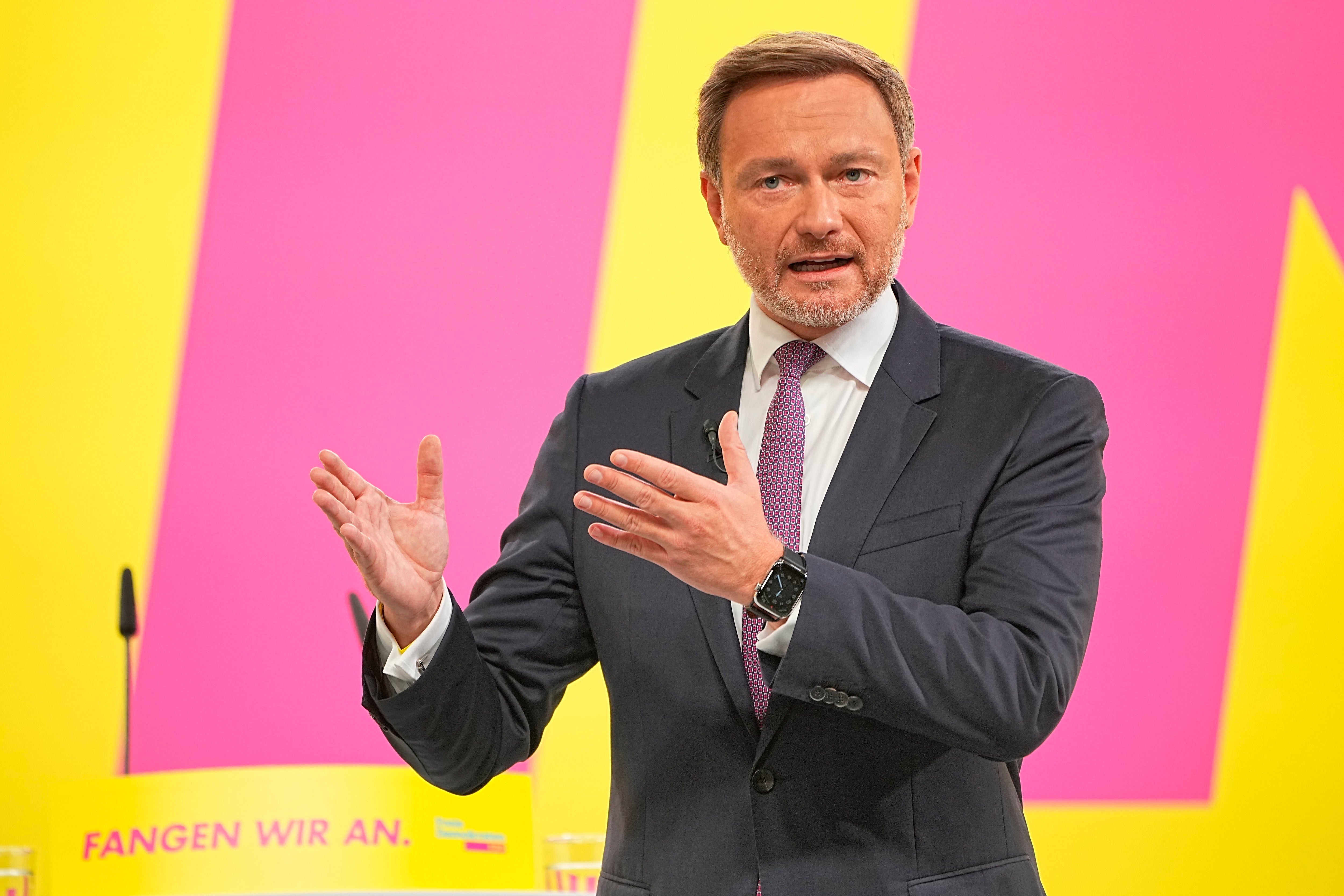2nd party approves deal for Scholz's new German government
Germany’s pro-business Free Democrats have approved a deal to form a new government with two center-left parties

Your support helps us to tell the story
From reproductive rights to climate change to Big Tech, The Independent is on the ground when the story is developing. Whether it's investigating the financials of Elon Musk's pro-Trump PAC or producing our latest documentary, 'The A Word', which shines a light on the American women fighting for reproductive rights, we know how important it is to parse out the facts from the messaging.
At such a critical moment in US history, we need reporters on the ground. Your donation allows us to keep sending journalists to speak to both sides of the story.
The Independent is trusted by Americans across the entire political spectrum. And unlike many other quality news outlets, we choose not to lock Americans out of our reporting and analysis with paywalls. We believe quality journalism should be available to everyone, paid for by those who can afford it.
Your support makes all the difference.Germany's pro-business Free Democrats on Sunday approved a deal to form a new government with two center-left parties, moving Chancellor-designate Olaf Scholz a step closer to taking office as the country's new leader this week.
The Free Democrats reached an agreement last month to form a coalition with Scholz's Social Democrats and the environmentalist Greens effectively crossing the aisle to ally with the two parties.
“This is a coalition agreement for policies of the center, which won't shift our country to the left but wants to move it forward," party leader Christian Lindner told a largely online party convention.
Delegates voted 535 to 37 to approve the agreement, with eight abstentions. After the Social Democrats backed it overwhelmingly on Saturday, only one more hurdle remains before parliament can elect Scholz on Wednesday. That is the result of a ballot of the Greens’ 125,000-strong membership, which is expected on Monday — the biggest challenge for the deal but one it is expected to pass.
Germany's new government aims to step up efforts against climate change and do more to modernize the country, including improving its notoriously poor cellphone and internet networks. It also plans more liberal social policies, including legalizing the sale of cannabis for recreational purposes and easing the path to German citizenship, while pledging greater efforts to deport immigrants who don't win asylum.
At the Free Democrats’ insistence, the prospective partners have said they won’t raise taxes or loosen curbs on running up debt. Lindner is set to become Germany's new finance minister, and the party also will get the transport, justice and education ministries.
The Free Democrats governed West Germany as the Social Democrats' junior partner under Chancellors Willy Brandt and Helmut Schmidt from 1969 to 1982. But since then, they have allied largely with the center-right Union bloc of outgoing Chancellor Angela Merkel
However, the Union's election defeat in September and ensuing turmoil in the center-right bloc made the three-way alliance under Scholz a more realistic option.
Merkel, who has remained in office as a caretaker chancellor while the new government was being negotiated, will step down this week after 16 years at Germany's helm. She did not seek reelection. Her party will now go into opposition.
___
Follow AP’s coverage of Germany’s transition to a new government at https://apnews.com/hub/germany-election.